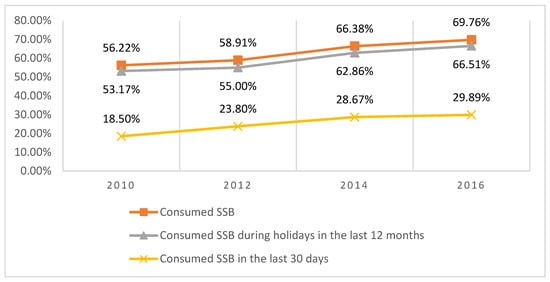Sustainable Diet Combining Socio-Economic, Environmental, and Nutritional Objectives
A topical collection in Sustainability (ISSN 2071-1050).
Viewed by 5747Editors
Interests: analysis of consumer behavior and preferences; the evaluation of the socio-economic sustainability of dietary behaviors; economic analysis of food safety and food quality schemes with a value chain sustainability perspective
Special Issues, Collections and Topics in MDPI journals
Interests: - Complex carbohydrate, dietary fibre, prebiotics and antioxidants in foods, and their effects on metabolism and intestinal functions. - Food educational health learning programs and children population surveys. - Child malnutrition in developing countries - Diet sustainability, applying the nutritionist's viewpoint to a topic that had been mainly faced with an ecological approach.
Special Issues, Collections and Topics in MDPI journals
Interests: assessing agri-food and agri-environmental policies through mathematical programming techniques; optimizing the economic and environmental profile of the food diet composition; developing sustainability indicators applied to food quality schemes and public food procurement
Topical Collection Information
Dear Colleagues,
In the context of global and environmental challenges, involving growth in world population and urbanization, climate change, biodiversity reduction, water depletion, ecosystem degradation, food loss and waste, etc., the transition towards more healthy and sustainable diets is necessary for global sustainable development.
This Special Issue welcomes original research and reviews of literature focusing on sustainable dietary patterns and, in particular, on the following topics:
- Models identifying sustainable diets involving multiple dimensions (e.g., nutrition/health, environmental impact, affordability, acceptability, equity, etc.);
- Factors driving the adoption of sustainable diets;
- Interventions by public and/or private bodies (e.g., information treatments, fiscal measures, education, labels, etc.) to promote sustainable diets;
- Targets for healthy diets from sustainable food systems intertwined with the UN Sustainable Development Goals;
- Comparing socioeconomic, environmental sustainability, and cultural interconnections of different dietary patterns;
- Assessing the environmental impact of diets through Life Cycle Assessment (LCA) approaches;
- Relationships between sustainable diets and public food procurement strategies;
- Shifts towards more sustainable dietary patterns, including reductions in food loss and waste, and implications for food production, retail and food service (including public or private canteens).
Papers selected for this Special Issue are subject to a rigorous peer review procedure with the aim of the rapid and wide dissemination of the research results, developments, and applications.
Assoc. Prof. Dr. Davide Menozzi
Assoc. Prof. Dr. Francesca Scazzina
Prof. Dr. Michele Donati
Guest Editors
Manuscript Submission Information
Manuscripts should be submitted online at www.mdpi.com by registering and logging in to this website. Once you are registered, click here to go to the submission form. Manuscripts can be submitted until the deadline. All submissions that pass pre-check are peer-reviewed. Accepted papers will be published continuously in the journal (as soon as accepted) and will be listed together on the collection website. Research articles, review articles as well as short communications are invited. For planned papers, a title and short abstract (about 100 words) can be sent to the Editorial Office for announcement on this website.
Submitted manuscripts should not have been published previously, nor be under consideration for publication elsewhere (except conference proceedings papers). All manuscripts are thoroughly refereed through a single-blind peer-review process. A guide for authors and other relevant information for submission of manuscripts is available on the Instructions for Authors page. Sustainability is an international peer-reviewed open access semimonthly journal published by MDPI.
Please visit the Instructions for Authors page before submitting a manuscript. The Article Processing Charge (APC) for publication in this open access journal is 2400 CHF (Swiss Francs). Submitted papers should be well formatted and use good English. Authors may use MDPI's English editing service prior to publication or during author revisions.
Keywords
- sustainable diet
- diet cost
- nutrients
- life cycle assessment
- climate change
- ecological impact
- policy interventions
- sustainable food systems
- social acceptability






